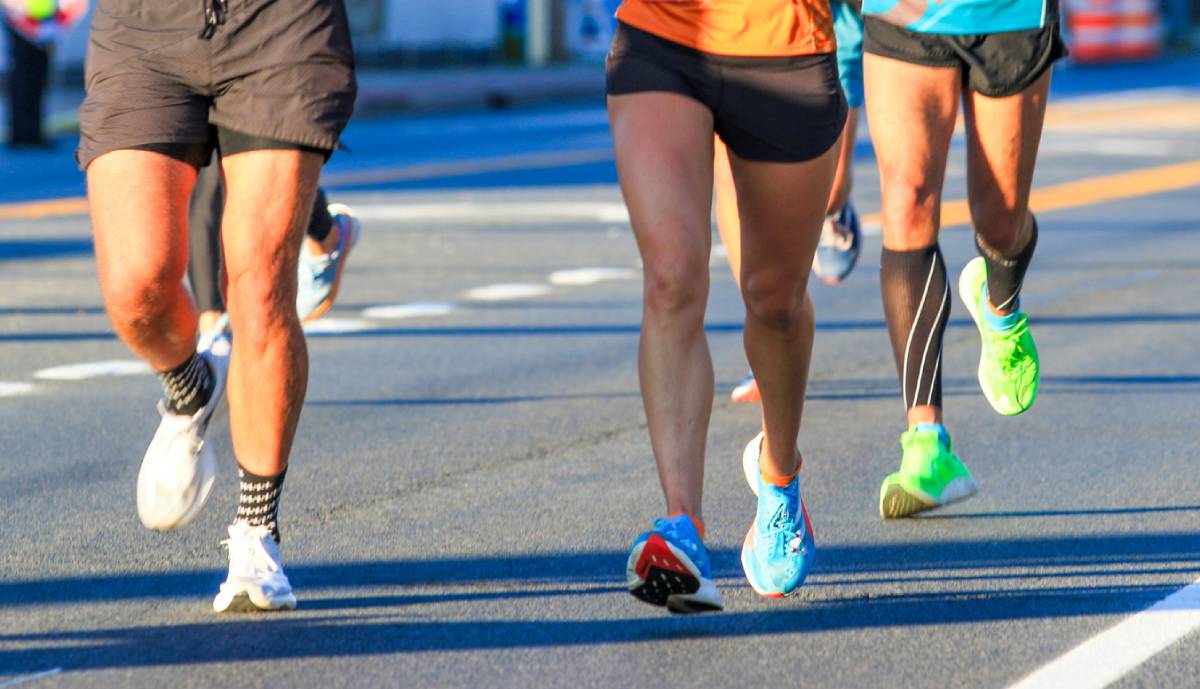Even if you are an experienced runner, heel pain can sneak up on you after a morning jog. You may be wondering, “How can you counter heel pain after running?” Most cases of heel pain can be managed by taking care of yourself and resting. However, some people may have persistent pain. This can lead them to think about different options, such as minimally invasive heel surgery. That being said, with the correct healing strategies, you can ease the pain on your feet. In this article, we will discuss exactly how you can do that.
What Causes Heel Pain After Running
Before we discuss how to care for your feet after running, let’s briefly explore why we may experience post-run discomfort in our heels. Most of the time, heel pain after running is caused by overuse of our feet, poor footwear, or even improper running technique. One of the common culprits of heel pain is plantar fasciitis, which is a condition where the band of tissue that is along the bottom of your foot becomes inflamed. There are other possible causes, including Achilles tendonitis, heel spurs, and stress fractures.
Sometimes, the discomfort you are feeling may not even be an injury. Instead, the muscles in your calves or the arches of your feet might be tight and putting extra strain on your heel. If this pain is mild, it can usually be managed with home remedies and will often subside after some rest. On the other hand, if it worsens over time, you should definitely consider seeing a specialist.
How Do You Counter Heel Pain After a Run?
If your heel hurts immediately after a run, your first step should be to rest. Give your foot a break and avoid putting pressure on it for a few hours. Apply an ice pack to the affected area for 15-20 minutes to help reduce inflammation. Another thing you can try is to roll the bottom of your foot over a frozen water bottle. While it may sound simple, this can help loosen any tighter tissues and improve blood circulation.
Footwear Makes a Difference
It is essential to note that wearing the wrong shoes can exacerbate your heel pain and even be the cause of it. Runners need to wear shoes that provide good arch support, sufficient heel cushioning, and a snug fit that neither squeezes their feet nor rubs against them. If you are unsure about the kind of shoe you should buy, visit a running store where they can analyze your gait and recommend a shoe more tailored to your foot’s shape.
Another option is to have orthotic inserts that can help balance flat feet or high arches. You can obtain custom orthotics from a podiatrist. However, over-the-counter ones still provide some support.
Stretching and Strengthening
Having regular stretching and strengthening exercises in your routine can not only control your heel pain but also prevent it. Try to focus on stretching your calves, Achilles tendon, and plantar fascia. A simple stretch that can be done almost anywhere is to place your toes against a wall and gently lean forward until you feel a pull along your arched heel.
Toe curls or towel crunches can be great strengthening exercises that can build stability in your foot muscles. Stronger feet equate to straining less with every step you take.
Training Adjustments
Sometimes, heel pain can be a sign that you are overexerting yourself. The 10 percent rule, which advises against increasing your weekly mileage by more than 10 percent, is a good guideline to follow. Additionally, it is in your best interest to avoid running on hard or uneven surfaces whenever possible and to allow your body time to rest and recover.
You can cross-train with low-impact activities, such as swimming or cycling, to give your heels a break. This way, you can still upkeep your fitness levels!
When to Seek a Specialist
If your pain is stubborn despite taking care of it at home, that means you need to consult a specialist. They will be able to assess your foot mechanics and create a treatment plan personalized to your needs. In some instances, you may benefit from heel pain treatment, and a specialist can help you decide which will work best for you. Do not delay taking care of yourself. Ignoring heel pain can lead to serious problems. Seek out a professional today!
